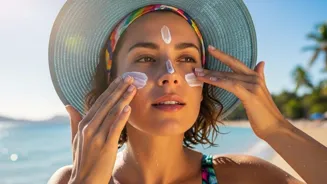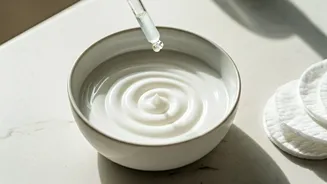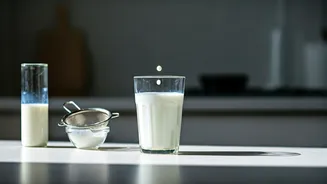Sunscreen has long been typecast as a summer essential, pulled out only on beach vacations or during peak heatwaves. But dermatologists and skincare experts agree: sun protection is not seasonal. Rain
or shine, humid or chilly, the skin is constantly exposed to ultraviolet (UV) radiation that accelerates ageing, triggers pigmentation, and raises the risk of skin cancer. True skincare begins with daily SPF, because the sun never really takes a day off.
Sunscreen Beyond Summer
“It’s a common misconception that sunscreen is only needed during peak summer. UVA rays, in particular, are present at consistent levels year-round and can penetrate through clouds and glass. Consistent use is the key to building long-term protection,” said Malini Adapureddy, Founder & CEO of Deconstruct.
Dermatologists echoed this, pointing out that cloudy skies don’t reduce the skin’s exposure to harmful rays. Dr. Navjot Arora, Consultant Dermatologist, Dermaheal Skin and Clinic, Delhi, explained, “Up to 80% of UV rays can pass through clouds, silently damaging your skin without you realising it. Daily use of sunscreen helps prevent premature ageing, sunburn, and reduces the risk of skin cancer.”
Weather Doesn’t Diminish Damage
Seasons may change how we feel the sun, but they don’t change how UV rays work. “During winter, reflection from surfaces like water, snow, or even concrete can intensify UV impact,” said Adapureddy. In monsoon humidity, people often assume they’re protected, but the reality is different.
Adding perspective, Dr. Vishalakshi Viswanath, Consultant Dermatologist, KIMS Hospitals, Thane, noted, “Most people use sunscreen only when they are on a beach holiday or a hot summer afternoon. But sunscreen usage is a daily habit, not a seasonal habit. Even indoors, blue light from devices contributes to skin damage.”
Choosing the Right Formulation
Comfort is the secret to consistency. “It is best to go with lightweight, non-greasy formulations that adapt to the climate. Gel-based sunscreens are perfect for humid months, while hydrating formulas with hyaluronic acid or niacinamide work better in colder weather,” said Adapureddy.
Dr. Gaurang Krishna, MD, Longevity Expert and Hair Transplant Surgeon at MedLinks, reinforced the importance of SPF choice: “Dermatologists advise using a broad-spectrum sunscreen with at least SPF 30 and PA+++ as part of your morning routine. Think of SPF as daily armour: it preserves collagen, delays visible ageing, and cuts down long-term risks.”
Common Mistakes People Make
Experts agree that one of the biggest errors is inconsistent application. Adapureddy pointed out, “Most people apply too little sunscreen or forget to reapply every few hours.” Dr. Pravin Banodkar, Co-Founder & Lead Dermatologist, Skin Beyond Borders, added, “UV damage builds silently. Over the years, it can lead to pigmentation, atypical moles, and early wrinkles. Even indoors, infrared and visible light contribute to skin ageing. Sunscreen isn’t optional.”
The Daily Habit That Pays Off
Ultimately, sunscreen is less about quick fixes and more about prevention. “Daily SPF is the easiest, cheapest, and best insurance policy for your skin, no matter if the sun is shining or not,” said Dr. Vishwanath.
From preventing early wrinkles to cutting down cancer risks, sunscreen is more than skincare. It’s self-care. And just like brushing your teeth, it’s a habit worth keeping every single day.















